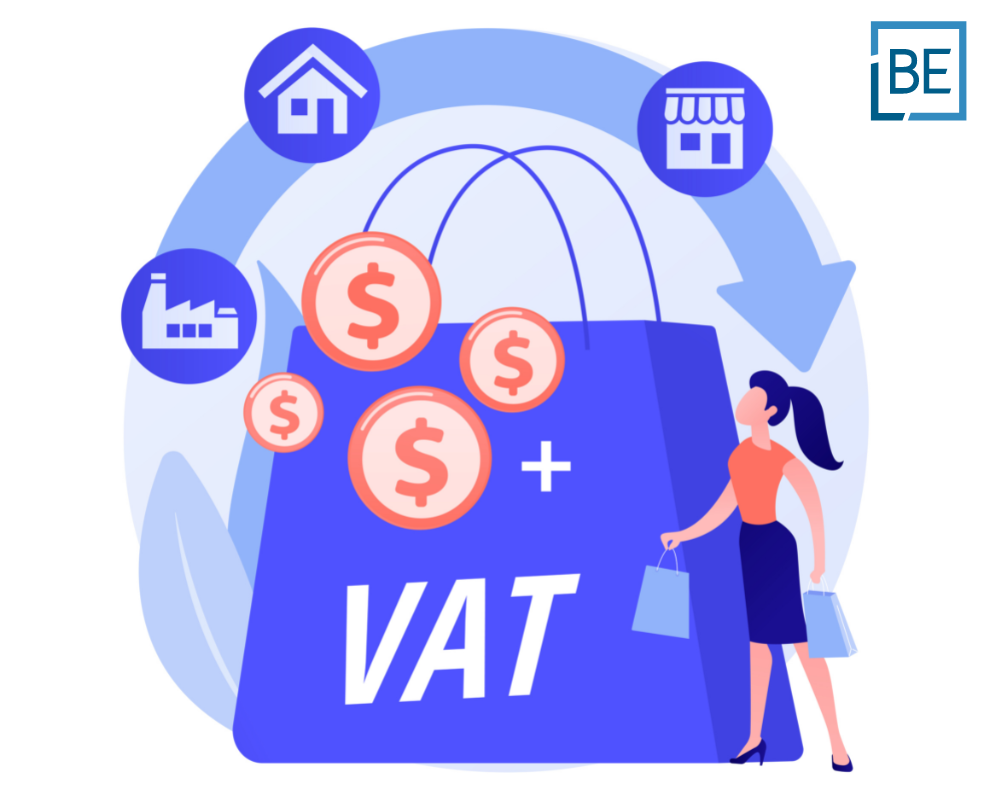accounting and secretary
VAT in Thailand
06/10/2022
Any person or company that supplies goods or provides services in Thailand with an annual turnover exceeding THB 1.8 million is subject to VAT.
It is important for any company who reaches the VAT threshold to register for VAT and satisfy the requirements to stay fully compliant with the Revenue Code. Failure to do so could result in penalties being imposed upon the company.
In this article we will provide an overview of the VAT compliance procedures in Thailand.
What is VAT?
Value Added Tax (VAT) registration is mandatory for any company who has a gross income of THB 1,800,000 or more per year.
Companies who import goods, sell goods or supply services in Thailand must register for the payment of VAT. A service is deemed to be provided in Thailand if the service is performed in Thailand. It does not matter where the service is executed or if it is used somewhere outside of Thailand.
It is important to note that some types of services are VAT exempt and there are others that are zero-rated.
The current VAT rate in Thailand is set at 7 percent.
Who can claim 0% VAT in Thailand?
Thailand offers a VAT rate of 0% on the following activities:
- Export of goods.
- Services rendered in Thailand and consumed outside Thailand.
- International transport services by aircraft or sea.
- Sales of goods or services between bonded warehouses and businesses located in export processing zones or duty-free zones.
Which activities are exempted from VAT in Thailand?
- The sale & import of specific products.
- Professional services such as medical, audit and regulated legal services.
- Services provided by Thai governmental organisations.
- Land transportation.
- Educational services provided by recognized schools.
- Cultural services, such as libraries and museums
- Rent owed on immovable properties such as real estate
- Religious and charitable services.
What else do I need to know about VAT in Thailand?
Entrepreneurs and businesses in Thailand should be aware of the following information relating to VAT in Thailand.
Registering for VAT in Thailand
Applicable individuals or companies must register for VAT purposes before the operation of the business commences or within 30 days after its income reaches the threshold.
Should the applicant have several offices, the application must be submitted to the Revenue Office where the company’s head office is located.
When to file and pay VAT returns in Thailand?
VAT returns must be filed in the month (within 15 days) following the payment and the issuance of a tax invoice. Businesses must file the following forms in order to comply with VAT regulations:
- P.P 36 for VAT for imported services (due on the 7th of each month)
- P.P 30 for VAT for goods & services (due on the 15th of each month)
Please note that companies eligible for e-filing will receive an additional 8 days to file their VAT returns i.e by the 15th & 23rd of the month.
VAT refunds in Thailand
If the input tax exceeds the output tax each month, the taxpayer can claim for a VAT refund. Refunds can be paid in either cash or tax credits.
VAT refunds will always be available for zero-rated VAT situations.
Unused input tax can be credited against any future output tax owed within the following six months. Please note, that these credits can only be claimed within three years from the filing date.
What happens if I fail to pay VAT?
The Revenue Department imposes fines for the late submission of VAT returns (300 THB within the first 7 days and 500 THB after), penalties of up to 200% of due taxes, as well as surcharge accruing at the monthly rate of 1.5% of due taxes.
How can Belaws help?
For more information about VAT in Thailand, why not talk to one of our experts now?
Please note that this article is for information purposes only and does not constitute legal advice.
Our consultations last for a period of up to 1 hour and are conducted by expert Lawyers who are fluent in English, French and Thai.
Consultations can be hosted via WhatsApp or Video Conferencing software for your convenience. A consultation with one of our legal experts is undoubtedly the best way to get all the information you need and answer any questions you may have about your new business or project.
USD 150
Up to 1 hour
Online payment (Paypal or Credit card)
Legal consultation can be conducted in English, French or Thai
Legal consultations are handled by experienced lawyers from the relevant fields of practice
Frequently asked questions
Is cannabis legal in Thailand?
The production of products containing cannabis is possible for foreign owned entities. However, this is subject to various different licence requirements and obligations depending on the type of product. For example, food products require a licence for food manufacturing from the Food and Drug Administration (FDA).
Cultivation cannabis in thailand
There are no restrictions for the mass cultivation of cannabis as a business operation for Thai entities. Business owners are required to register cannabis cultivation with the FDA through the application “Plook Gan”. However, a foreign entity may be restricted from agricultural activities under the Thai Foreign Business Act.
Can I buy/sell cannabis to smoke with a THC level above 0.2%?
The current laws state that cannabis extracts with a THC level of above 0.2% are illegal. However, the definition of extract is still very unclear.
Generally speaking, cannabis extracts tend to be products made by mechanically extracting and refining parts of the cannabis plant. These extracts are then used to create products such as hash, oils and tinctures. Such extracts tend to contain much higher levels of THC etc than those found naturally in the plant.
Since only extracts with a THC level of >0.2% are considered illegal in Thailand, it seems as though natural leaves and flowers with a higher level of THC are not illegal and can be bought and sold via shops and dispensaries in Thailand.
It is important to note that it is possible to smoke cannabis recreationally in Thailand but only on private property. Smoking publicly is considered a public nuisance. Furthermore, private property does include restaurants and cafes, but they must have a designated place for smoking.
Setting Up a Cannabis Business in Thailand
Both, foreign owned companies and majority foreign owned companies incorporated in Thailand are prohibited from producing, selling, importing, exporting and possessing cannabis.
Distribution of cannabis is only available to companies established under Thai law that have Thai nationals who:
- own at least two-thirds of the company capital and;
- hold at least two-thirds of the director positions.
However, if you satisfy the above criteria and have both ⅔ of the ownership and positions on the board held by Thai nationals, it is indeed possible for your company to produce and sell cannabis and associated products (such as tinctures with less than 0.2% THC).
How to obtain a Cannabis licence in Thailand?
Eligible applicants for a licences relating to cannabis in Thailand include Thai citizens, companies registered under Thai law (with at least two-thirds of directors, partners, or shareholders being Thai nationals), and community enterprises governed under the Community Enterprise Act B.E. 2548 (2005).
For a company, the representative whose name appears on the application (and license, if successful), must be a Thai national who is at least 20 years old, they must also have a domicile or office in Thailand, and must fulfil the basic requirements of legal capacity (i.e., competency) and financial solvency. The representative also cannot be the holder of a licence that is currently suspended or has been revoked under Thailand’s laws on narcotics or psychotropic substances. Finally, they cannot have received a criminal sentence for any violation of these laws.
Related articles
Subscribe today
Subscribe today
To our newsletter for all the latest legal news
in South East Asia, Belaws updates and
special promotions on our services.
To our newsletter today for all the latest legal news in South East Asia,
Belaws updates and special promotions on our services.







 Business licences in Thailand
Business licences in Thailand